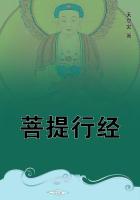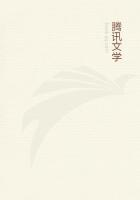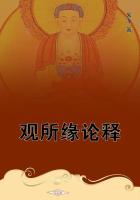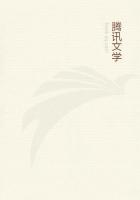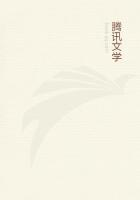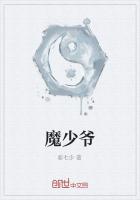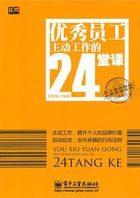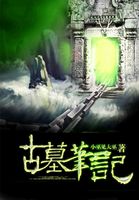Jackson, of Boston, who had attended some lectures on electricity in Paris, and carried an electro-magnet in his trunk. One day while Morse and Dr. Jackson, with a few more, sat round the luncheon table in the cabin, he began to talk of the experiments he had witnessed. Some one asked if the speed of the electricity was lessened by its passage through a long wire, and Dr. Jackson, referring to a trial of Faraday, replied that the current was apparently instantaneous. Morse, who probably remembered his old lessons in the subject, now remarked that if the presence of the electricity could be rendered visible at any point of the circuit he saw no reason why intelligence might not be sent by this means.
The idea became rooted in his mind, and engrossed his thoughts. Until far into the night he paced the deck discussing the matter with Dr.
Jackson, and pondering it in solitude. Ways of rendering the electricity sensible at the far end of the line were considered. The spark might pierce a band of travelling paper, as Professor Day had mentioned years before; it might decompose a chemical solution, and leave a stain to mark its passage, as tried by Mr. Dyar in 1827; Or it could excite an electro-magnet, which, by attracting a piece of soft iron, would inscribe the passage with a pen or pencil. The signals could be made by very short currents or jets of electricity, according to a settled code.
Thus a certain number of jets could represent a corresponding numeral, and the numeral would, in its turn, represent a word in the language. To decipher the message, a special code-book or dictionary would be required. In order to transmit the currents through the line, he devised a mechanical sender, in which the circuit would be interrupted by a series of types carried on a port-rule or composing-stick, which travelled at a uniform speed. Each type would have a certain number of teeth or projections on its upper face, and as it was passed through a gap in the circuit the teeth would make or break the current. At the other end of the line the currents thus transmitted would excite the electro-magnet, actuate the pencil, and draw a zig-zag line on the paper, every angle being a distinct signal, and the groups of signals representing a word in the code.
During the voyage of six weeks the artist jotted his crude ideas in his sketch-book, which afterwards became a testimony to their date. That he cherished hopes of his invention may be gathered from his words on landing, 'Well, Captain Pell, should you ever hear of the telegraph one of these days as the wonder of the world, remember the discovery was made on the good ship Sully.'
Soon after his return his brothers gave him a room on the fifth floor of a house at the corner of Nassau and Beekman Streets, New York. For a long time it was his studio and kitchen, his laboratory and bedroom.
With his livelihood to earn by his brush, and his invention to work out, Morse was now fully occupied. His diet was simple; he denied himself the pleasures of society, and employed his leisure in making models of his types. The studio was an image of his mind at this epoch. Rejected pictures looked down upon his clumsy apparatus, type-moulds lay among plaster-casts, the paint-pot jostled the galvanic battery, and the easel shared his attention with the lathe. By degrees the telegraph allured him from the canvas, and he only painted enough to keep the wolf from the door. His national picture, 'The Signing of the First Compact on Board the Mayflower,' was never finished, and the 300 dollars which had been subscribed for it were finally returned with interest.
For Morse by nature was proud and independent, with a sensitive horror of incurring debt. He would rather endure privation than solicit help or lie under a humiliating obligation. His mother seems to have been animated with a like spirit, for the Hon. Amos Kendall informs us that she had suffered much through the kindness of her husband in becoming surety for his friends, and that when she was dying she exacted a promise from her son that he would never endanger his peace of mind and the comfort of his home by doing likewise.
During the two and a half years from November, 1832, to the summer of 1835 he was obliged to change his residence three times, and want of money prevented him from combining the several parts of his invention into a working whole. In 1835, however, his reputation as an historical painter, and the esteem in which he was held as a man of culture and refinement, led to his appointment as the first Professor of the Literature of the Arts of Design in the newly founded University of the city of New York. In the month of July he took up his quarters in the new buildings of the University at Washington Square, and was henceforth able to devote more time to his apparatus. The same year Professor Daniell, of King's College, London, brought out his constant-current battery, which befriended Morse in his experiments, as it afterwards did Cooke and Wheatstone, Hitherto the voltaic battery had been a source of trouble, owing to the current becoming weak as the battery was kept in action.
The length of line through which Morse could work his apparatus was an important point to be determined, for it was known that the current grows feebler in proportion to the resistance of the wire it traverses.
Morse saw a way out of the difficulty, as Davy, Cooke, and Wheatstone did, by the device known as the relay. Were the current too weak to effect the marking of a message, it might nevertheless be sufficiently strong to open and close the circuit of a local battery which would print the signals. Such relays and local batteries, fixed at intervals along the line, as post-horses on a turnpike, would convey the message to an immense distance. 'If I can succeed in working a magnet ten miles,' said Morse,'I can go round the globe. It matters not how delicate the movement may be.'

